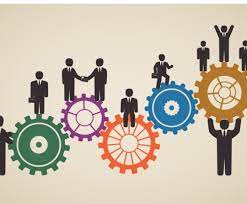By Alusine Fullah
“Happy employees work better than dissatisfied ones and a good working environment is great for productivity. Though there are many different approaches out there, from providing different physical environments to organizing holiday events, companies should always strive to keep employees content and healthy,” Dan Latimo.
How can an office/ company survive without its employees? For me, it sounds IMPOSSIBLE. I always have the belief that the success of any company/ office banks on its employees.
For the last decades, being an employee, I have felt, smell and seen the importance of good employee relations. In certain working places, it is really challenging for the management/ employers to cement and foster good working relations. For other organizations, employee relation is not a problem.
Employee relations are a hot-topic buzzword in business circles these days, and for good reason: the relationship between an employer and its employees is an integral part to the longevity of any successful company or organization. But for something so critical to business operations, the details can be irritatingly vague and general.
This article can provide an overview of what employee relations entails and pours reasons as to why it is so important and some strategies that any company— big or small— can try implementing to improve the relationship employers maintain with employees.
Employee relations refer to the relationship between or among an employer and its employees. Depending on the context, the term has both practical and theoretical applications. Certain companies may have a dedicated team for maintaining and improving employee relations and this term may refer to this team. In other cases, the term may refer to theories, plans and policies designed to support employees and their interests. Regardless of the approach, employee relations are typically overseen by a company’s human resources department.
Employee relations concerns the building of positive relationships and interactions among employers and employees, and at a broader level helps foster a sense of community within an organization. This could entail initiating transparent workplace communication or supporting the emotional, physical and psychological health of employees. Ultimately, the goal of employee relations is to create a positive relationship between employers and employees that leads to an increase in employee retention, happiness and productivity.
Unfortunately, it’s a fact of life that people will disagree with each other. The more people are involved in the disagreement, the greater the overall discontent, and by extension, the impact on the workplace. In cases such as this, the role of employee relations is to resolve the conflicts before they start to spiral and negatively influence others. This is also true for disputes or issues the employee has with the company. The employer should always ready to RESOLVE or LOOK INTO conflicts especially top-bottom ones.
In certain offices, the environment is not conducive for the workers. An unsafe workplace environment is a recipe for disaster and to a greater extent room for office conflict. Injuries, infrastructure damage—all of this can be disastrous to employees and employers. Employee relations must therefore promote awareness of any risks, ensure adequate training where necessary and write company-wide policies in the event of an emergency. Examples include first aid training and fire evacuation procedures. If an injury or accident does occur, the department is responsible for handling medical leave and compensation.
Today, in certain offices, sexual harassment and bulling are like food to eat. It is alive and well. Employees who sexually harassed will always have negative feelings about the company. Employees sexually harassed or bullied should make reports to an employee relations department. The department is then responsible for investigating the allegation, reaching a conclusion and taking any necessary steps to resolve the situation and end the harassment or bullying. Employee relations are also responsible for setting up any preventative measures, such as scheduling anti-harassment courses and writing anti-mistreatment policies.
At its most basic, an employee relations department remains important for a very simple reason: without employees, a company could not function. Companies want to keep experienced, productive and valuable employees for as long as possible—an effort often referred to as employee retention. To do this, employees must be happy enough that they will not—or at least will remain less likely to—leave the organization.
An organization with a positive relationship between and among management and its employees may see both the retention rates and overall productivity soar. Both of these things have a tangible impact on the company’s value and indeed play a key role in determining the success of an organization. Without recognizing and implementing employee relations strategies, many companies would not be able to make it off the ground, much less achieve long-term success.













